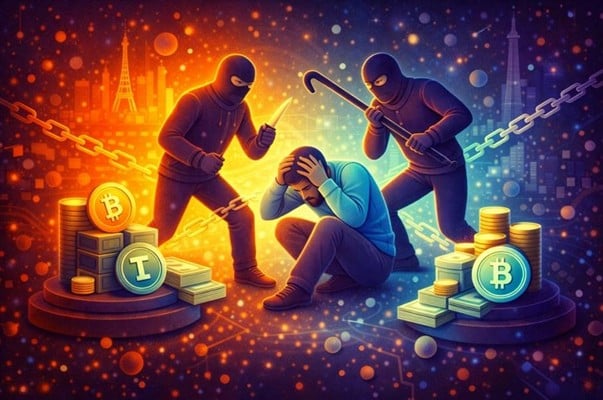June 15 was marked by the hacking of the Twitter account of Vitalik Buterin, co-founder of Ethereum, by hackers. While the cryptocurrency community is still recovering from this major incident, let's take a look at the details surrounding this matter. Let's take a look at the key aspects that need to be discussed to improve security in this area.
What happened ?
At the beginning of the evening, followers of Vitalik Buterin's Twitter account were surprised to see a message. This announces that the holder had lost control of his account. It urged people not to send digital funds. So quickly, it became obvious that one or more hackers had taken over his profile. Furthermore, it appears that they were actively exploiting this situation to their advantage. But today, we know that this crime was committed following a SIM card substitution attack.
At the beginning of the evening, followers of Vitalik Buterin's Twitter account were surprised to see a message. This announces that the holder had lost control of his account. It urged people not to send digital funds. So quickly, it became obvious that one or more hackers had taken over his profile. Furthermore, it appears that they were actively exploiting this situation to their advantage. But today, we know that this crime was committed following a SIM card substitution attack.
Cybercriminals were quick to act. Indeed, they set up a scam consisting of asking users to send ETH (Ethers) to a specific address with the promise of receiving double in return. Of course, this was a well-known scam in the cryptocurrency world. However, we must recognize the ingenuity shown by these pirates. Indeed, we wonder how they were able to encourage Internet users to join this scam. And just to think that it is by exploiting the account of a personality as influential as Vitalik Buterin, it is striking!
What is the extent of the damage from the hacking of Vitalik Buterin's account?
It is still too early to determine precisely the extent of the losses caused by this attack. But it already appears that several users have fallen into the trap and sent money to the fraudsters. However, the total amount collected by the hackers from the victims is estimated at $691,000. Furthermore, this amount may never be revealed, given the anonymous nature of cryptocurrency transactions.
Damaged reputation
Even if the financial damage may be limited, the damage caused to Vitalik Buterin's reputation and to investors' confidence in Ethereum is significant. Additionally, many have questions about the security of accounts and other digital assets. They thus call into question one of the pillars on which the success of cryptocurrencies rests: user trust.
What are the consequences and lessons to be learned from the hacking of Vitalik Buterin’s account?
This event once again highlights the need for all players in the cryptocurrency ecosystem to pay increased attention to the security of their online accounts and that of their digital assets. However, several measures can be taken to limit the risks:
- Regularly check the security settings of your accounts on social networks and other online platforms.
- Use a unique, complex and robust password for each of your accounts.
- Implement two-step verification (2FA) to strengthen the security of access to your accounts.
- Never disclose confidential or sensitive information in public or to unauthorized persons.
Educate, inform and empower
It is also essential to work together to educate community members about the threats present in the digital world and the best practices to protect against them. The event surrounding the hacking of Vitalik Buterin's account should remind us of the importance of taking these issues seriously. In fact, this incident should cause us to redouble our efforts to ensure that user funds and data are protected.
Ultimately, it is up to everyone to take their share of responsibility in the fight against these types of scams and to secure their digital assets as best as possible. Regulators, industry companies and individual investors must all work together. In this way, they will be able to build a more secure and resilient environment in the face of the threats posed by cybercriminals in the constantly evolving world of cryptocurrencies.










